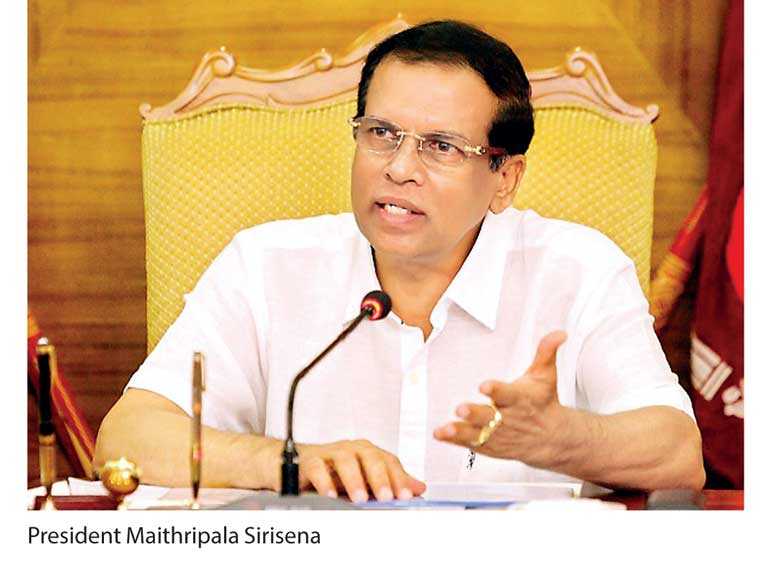Tuesday Feb 17, 2026
Tuesday Feb 17, 2026
Wednesday, 11 April 2018 00:00 - - {{hitsCtrl.values.hits}}
 By Bernard Fernando
By Bernard Fernando
The President expressing his concern has said that the present increase in the number of ward members should be brought down by half to 4,000 members. No doubt, the current imbroglio aggravated by horse-trading pervading the LG elections and selections would have spurred him to make this moot proposal.
He has realised that increasing the number of ward members would add to bribery and corruption and that merely expanding the political fraternity at exorbitantly high cost will not improve productivity of the LG machinery. His proposal any way will have to wait for the next LG polls.
However, from the day this huge increase in the number of ward members was disclosed to the public, we as citizens and taxpayers expressed our grave concern through the press about its adverse consequences to of no avail to the authorities.
Now the result as we can see is more and more chaos, bribery, corruption and horse-trading leading to additional burden to the taxpayer with a negative return on investment! Maybe the President also wanted to ensure that the additional income to be derived from the new tax system is spent on productive programs and debt repayment?
However, taking the cue from the President’s conviction, we exhort that a paradigm shift in our hugely unproductive political and public service culture should commence immediately to ameliorate the imminent damage that can be caused by the new set of local politicians exceeding 8,500 in number.
Towards this end, proper systems and procedures will have to be introduced to prevent potential bribery and corruption acts by these politicians. We have repeatedly stressed that the real remedy lies in objectively improving the services offered by the Grama Sevakas, Divisional Secretaries, Local Councils, Police and the Judiciary which directly relate to the needs and problems of people at ward level. It can be achieved by motivating and increasing the productivity of all Government and Local Government servants through customer service oriented training and target setting mechanisms linked to incentive schemes.
The new cadre of politicians should be deployed to identify and meet the development needs arising at local level in collaboration with the Grama Sevakas and the Divisional Secretaries. In this context, the job description of Grama Sevakas too demands revision. We also must remember that the Local Government machinery ran for more than two years sans its political counterparts without much hiccups and the Government must have saved a tidy sum in the process!
With the realisation of aforesaid cultural change, this layer of local politicians becomes redundant and can be totally removed. Now that smaller wards have been demarcated by the latest delimitation exercise, if still necessary, the savings can be utilised to introduce a system akin to ‘Gam Sabha’ method with wards being represented by an elected cadre of independent, acceptable and respectable development facilitators who meet the eligibility criteria set by the Elections Commission which will hold the Elections.
At the same time, more role responsibilities should be accorded to, irrevocable, Provincial Council system to make the ’white elephant’ produce results meeting its objectives. We reiterate that the need of the hour is improving the decentralised public service and not increasing the numbers in the unproductive, high cost political machinery which churns out false ‘demi gods’ to the people! The resulting direct and indirect savings also could be ploughed back to improve the lot of the people at grass root level.